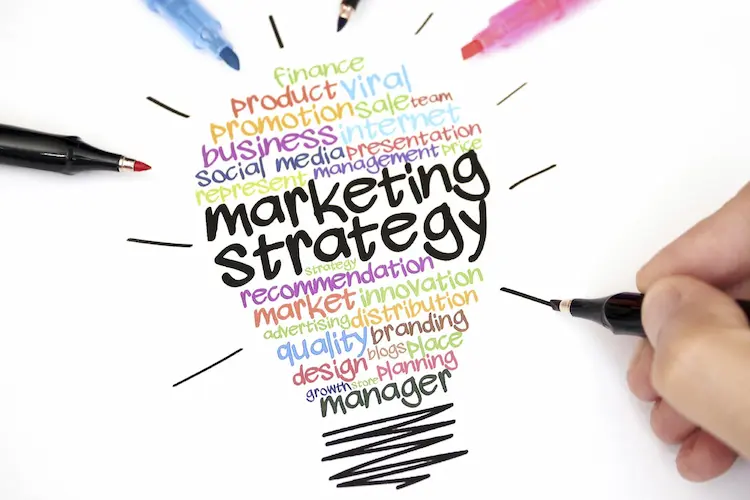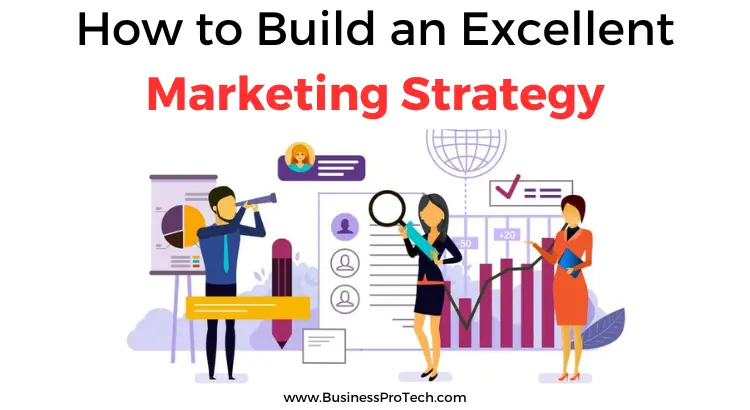We all know every other influencer online talking about how important a marketing strategy is. Whether you’re a business owner or an affiliate marketer, marketing is the only way to thrive in the business.
But, what most people don’t talk about is the ‘whys’ of this topic. Why should you invest in a PPC ad campaign? How does it benefit your business model?
Let’s explore more about it in the article today!
Benefits of an Excellent Marketing Strategy

- Increased Visibility and Brand Awareness: A good marketing strategy ensures that your target audience is aware of your brand, products, or services. The heightened visibility can lead to customer recognition and trust.
- Higher Sales and Revenue: Effective marketing strategies generate leads and nurture them before converting them into paying customers. When the sale increases, the business also grows.
- Better Understanding of Customers: Through market research and customer profiling, a marketing strategy helps you understand your audience’s needs, preferences, and behaviors. Utilize the information to tailor your offerings and messaging to resonate with your customers.
- Competitive Advantage: A strong marketing strategy can set you apart from your competitors. It helps you identify unique selling points and opportunities for differentiation, ensuring that you stay ahead in a crowded market.
- Adaptability: Effective marketing strategies are flexible and adaptable. They allow you to respond to changes in the market, consumer behavior, and emerging trends, keeping your business relevant and agile.
- Cost Efficiency: Focus on marketing channels and tactics to deliver the best ROI by allocating the marketing budget strategically. It reduces wastage and maximizes your marketing efforts.
- Customer Loyalty and Advocacy: Marketing strategies can include efforts to build customer loyalty. Satisfied customers are more likely to become brand advocates, promoting your business through word-of-mouth and referrals.
- Data-Driven Decision-Making: A good marketing strategy involves tracking and analyzing key performance indicators (KPIs). The data-driven approach enables you to measure the success of your campaigns and make informed decisions for continuous improvement.
Also Read: How to Build a Successful Go To Market Strategy (7 STEPS 2023)
How to Build an Excellent Marketing Strategy

- Define Your Objectives: Start by setting clear, specific, and measurable marketing objectives. What do you want to achieve with your marketing efforts? Common goals include increasing sales, expanding market share, or improving brand awareness.
- Know Your Audience: Conduct thorough market research to understand your target audience. Create customer personas that outline their demographics, interests, pain points, and behaviors. The information will guide your messaging and targeting.
- Analyze Your Competition: Study your competitors to identify their strengths and weaknesses. Determine what sets your business apart and how you can position yourself as a unique solution in the market.
- Choose Your Marketing Channels: Select the most appropriate marketing channels based on where your audience spends their time. It may include social media, content marketing, email marketing, pay-per-click advertising, SEO, and more.
Pro Tip: Find professional email addresses for free with GetEmail.io. The email finder platforms help you find email addresses of your target audience even on platforms like LinkedIn, Gmail and Salesforce.
- Develop Your Messaging: Craft compelling and consistent messaging that resonates with your target audience. Your messaging should convey your brand’s value proposition and address customer needs.
- Create a Content Plan: Content is a vital component of marketing. Plan and create content that provides value to your audience, establishes your expertise, and aligns with your marketing goals.
- Allocate Resources: Determine your marketing budget and allocate resources accordingly. Be strategic in your spending, focusing on channels and tactics that are likely to yield the best results.
- Implement and Monitor: Execute your marketing strategy and closely monitor its performance. Use analytics tools to track KPIs and make adjustments as needed.
- Adapt and Evolve: Marketing is an ongoing process. Continuously assess your strategy’s effectiveness and make refinements to stay aligned with changing market dynamics and customer preferences.
- Seek Professional Guidance: Consult with marketing experts or agencies, especially if you’re new to marketing or need specialized expertise in areas like SEO, advertising, or content marketing.
Wrap Up!
Building an effective marketing strategy takes time and effort, and it should be a dynamic document that evolves with your business. Update your strategy regularly to ensure its relevance and effectiveness.